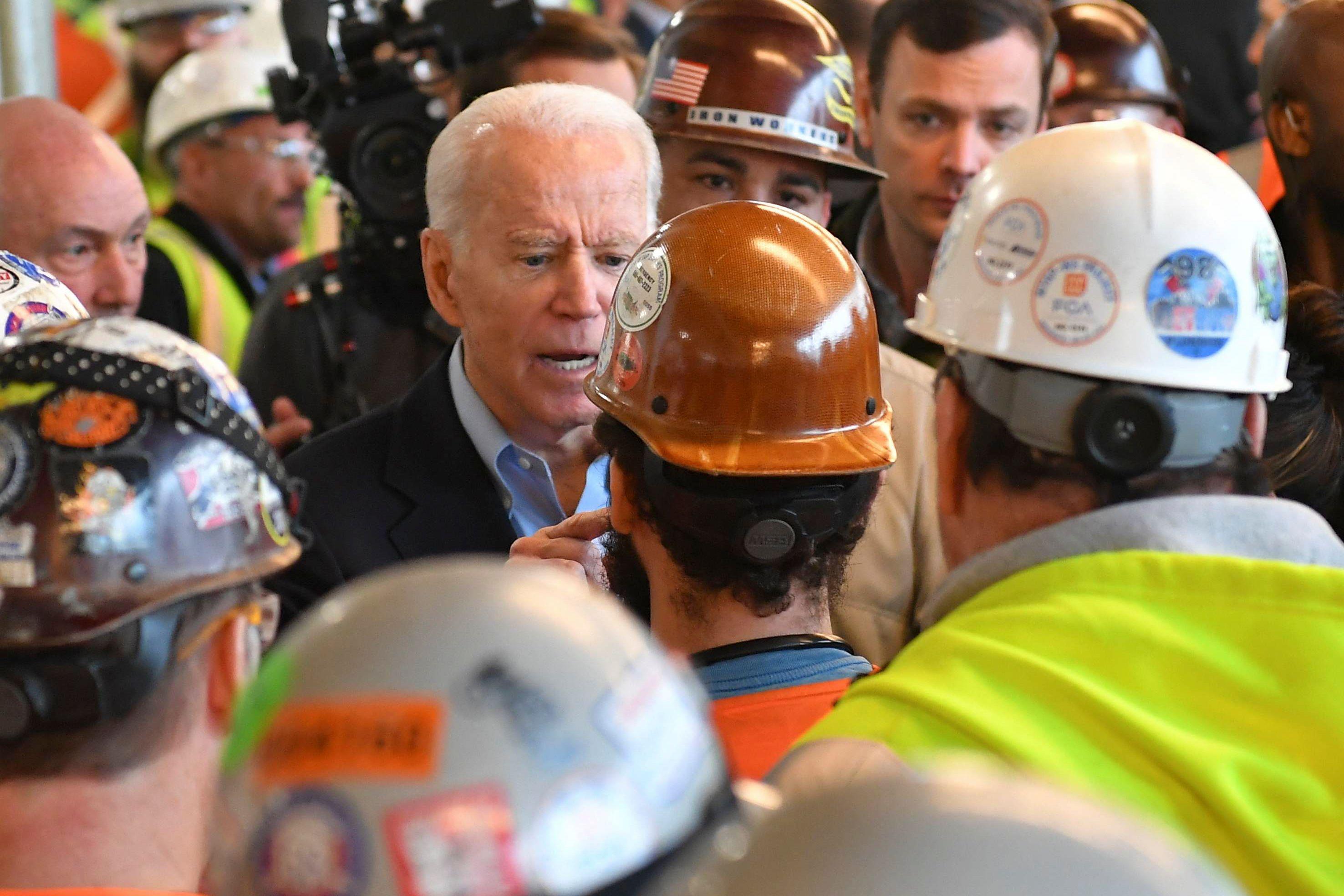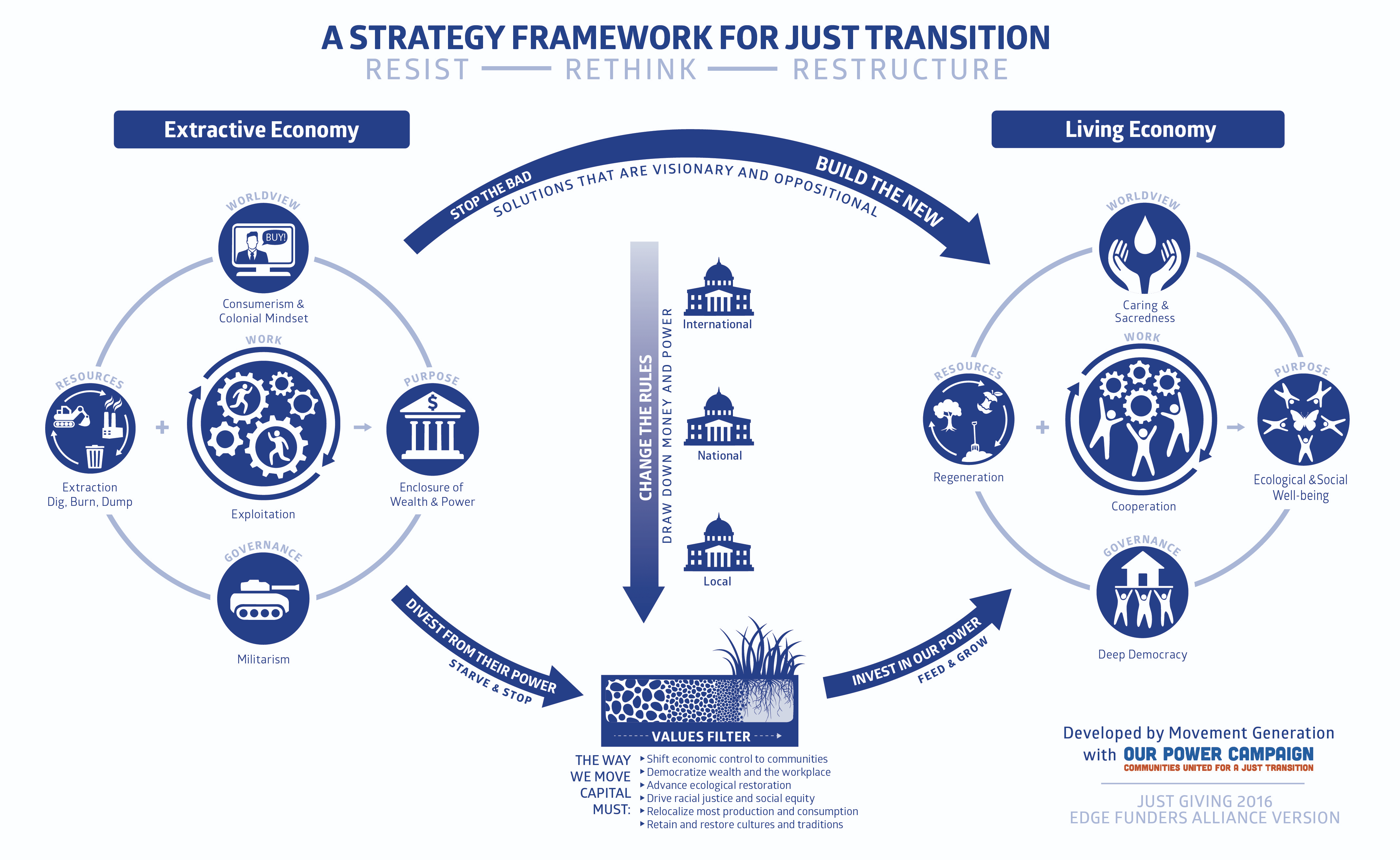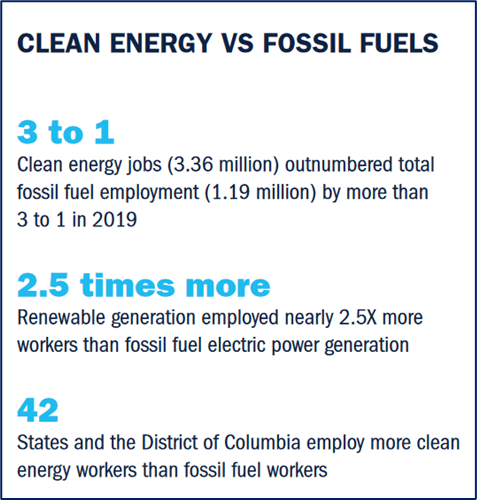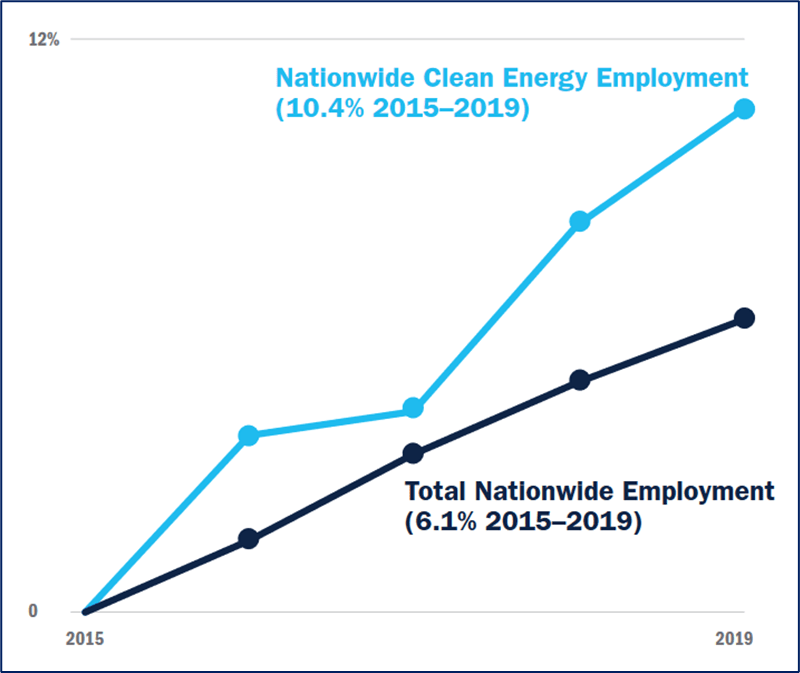The dueling crises of the pandemic-induced economic downturn and the ever-persistent threat of climate change are reinvigorating the conversation about a ‘just transition’ for fossil fuels workers.
A Just Transition is Good Politics
In just the first several days of his presidency, President Biden has made it clear that addressing climate change will be a prominent feature of his administration. The President has assembled the largest team ever inside the White House that is dedicated to climate change policy. This so-called Climate Cabinet is a recognition by Biden that climate change is no longer a niche public policy challenge that can be pursued within the confines of the Environmental Policy Agency, but rather, an expansive challenge affecting ever corner of the federal government.
The brute politics of climate change on Capitol Hill, however, have not changed much since Biden was last in the White House. Political intransigence from U.S. Senators from fossil fuels-dependent states remains an omnipresent challenge to achieving any big legislative victory on the climate change front. This is especially true in an evenly divided Senate where Joe Manchin – from heavily coal-dependent West Virginia – is arguably the body’s most influential Senator.
The COVID-19 pandemic presents an opportunity to fundamentally change the politics of climate change by highlighting the importance of a “just transition.” Put simply, a “just transition” is a term used to emphasize that the people and communities that powered America since the days of the Industrial Revolution deserve to be supported – not left behind – as we pivot to a more sustainable approach to producing energy. While the fossil fuels industry is rightfully criticized for its role in exacerbating the effects of climate change, workers within the industry are just trying to earn a respectable living and support their families, often in communities with few other job prospects.
On the campaign trail, Biden leaned into this conversation. His Climate Plan calls for the formation of a taskforce to help coal and power plant-dependent communities diversify their economies. The taskforce would:
“…help these communities access federal investments and leverage private sector investments to help create high-paying union jobs based upon the unique assets of each community, partner with unions and community colleges to create training opportunities for these new jobs…”
The Climate Plan also encourages the passing of federal legislation that would protect the retirement benefits of miners, their widows, and their dependents.
Not only are the above policies morally just, but they are also good politics that can hopefully loosen the logjam on Capitol Hill. It is imperative to not shun fossil fuels workers or make them feel guilty for the climate predicament our world is confronting. Federal policies that provide for the retraining of fossil fuels workers, in addition to other financial incentives, need to be a pivotal component to any broader climate change policy. This mindset is critical to winning support from members of Congress who represent districts and states that are heavily dependent on the fossil fuels industry.
COVID-19 Adds Urgency to the Moment
People who work in the fossil fuels industry and/or who live in communities whose economies rely on the industry have long been presented with a false choice – either you can have a job or have a healthy environment, but not both. In reality, robust climate action will have a stimulating effect on the economy and clean energy job prospects are overwhelmingly brighter than those in the fossil fuels industry.
This is precisely the message that John Kerry, U.S. Special Presidential Envoy for Climate, made just days ago during his first appearance in the White House Press Briefing Room.
John Kerry: “Unfortunately, workers have been fed a false narrative … that somehow dealing with climate is coming at their expense. No, it’s not.” pic.twitter.com/yMy9bWKqOc
— The Recount (@therecount) January 27, 2021
The COVID-19 pandemic has highlighted the fragility of the fossil fuels industry. In many respects, the pandemic has just greatly accelerated the employment trends seen in the clean energy sector visa vie the fossil fuels sector for years. The 2020 Clean Jobs Report released by E2 noted that in 2019, total clean energy jobs outnumbered total fossil fuels industry jobs by a 3-to-1 margin.
Clean energy jobs also grew at a greater clip than all jobs nationally in the immediate 5-year period before the 2020 economic downturn that so disproportionately affected the fossil fuels industry.
Clean energy job growth outpaced job growth in the fossil fuels industry, especially in fossil fuel-dependent states like Pennsylvania before COVID and that trend is only likely to accelerate once we are on the other side of the pandemic.
It should come as little surprise that many fossil fuels workers dealing with job losses related to the COVID-19 downturn are finding re-employment opportunities in the solar industry. A recent article in the Houston Chronicle highlighted this dynamic in Texas. The Lone Star state has seen a flood of large-scale solar investments in recent years, with companies like Lighthouse BP, a San Francisco-based solar company, investing more than $1 billion in solar projects in the state. Their CEO, Kevin Smith, noted that their growth is being supported by an influx of former oil and gas workers.
“No question, we are getting workers moving over from oil and gas. A lot of the oil and gas skills are applicable to solar.”
Raj Prabhu, CEO of Mercom Capital Group, an Austin-based clean-energy research firm, thinks that this dynamic is just beginning.
“Oil and gas is boom and bust, while solar has seen nothing but gradual growth over the last 10 years. This is where the jobs are going to be and where the economy is heading. If you’re not going to make the shift, you’re going to be left behind.”
We as a country can’t afford to allow today’s fossil fuels workers to be left behind. The social, economic, and political consequences are too great. While clean energy job prospects are appealing, old habits die hard. There is a great deal of familial pride and personal dignity that today’s coal miners find in their line of work. The collapse of the coal industry under COVID-19 only adds urgency to the just transition movement.
Germany Offers a Blueprint
While the United States largely shirked its climate change responsibilities in recent years, other developed countries pursued bold action. Germany is one such nation that passed historic legislation to wean the country off coal, while still supporting the economic needs of coal workers.
Last summer, Germany passed groundbreaking legislation to phase-out all of the country’s coal power plants by 2038. The legislation was born out of the multi-year efforts of a commission that consisted of industry, academia, environmental groups, and labor unions. Not only did this historic legislation establish a timetable for shuttering the country’s coal-fired power plants, it ensured that coal-dependent regions would receive critical government support to deal with the economic shock from such a move.
The legislation earmarked 40 billion euros in government aid to coal-dependent regions and ensured that coal plant operators would be compensated for shutting down capacity.
Germany has combined federal financial support for transitioning coal workers with local-led efforts focused on coal plant adaptive reuse and community revitalization strategies for an effective holistic approach that ensures a just transition for coal workers. In an example of the latter, a massive former coal mining complex in Essen, Germany was preserved and transformed into a UNESCO World Heritage site that now pumps tourism dollars into the community and serves as a prominent cultural amenity. Other examples can be found in the video below.
A holistic approach that phases out coal-fired power plants, invites key stakeholder groups to the policymaking table, and commits federal dollars to worker retraining programs and other support programs may serve as integral elements to a Biden Administration-led effort to aggressively combat climate change in way that is fair and just for America’s fossil fuels workers.
There are growing signs that the typical political alignment on climate change is being reshuffled. Just recently, some of the biggest names in corporate America like Amazon’s Jeff Bezos and Ford Motor Co. CEO, Bill Ford, penned a letter to President Biden pledging their support to the fight against climate change and committing to creating more American jobs in the process. They understand that the stakes couldn’t be higher. A recent poll commissioned by the United Nations dubbed as the “biggest survey ever” of global sentiment on climate change found that almost 2/3’s of the 1.2 million people surveyed agree that the world is currently in a state of climate emergency.
The politics as usual approach to climate change can’t persist forever in the United States. Legislation that places a premium on a just transition for fossil fuel workers may be the key to unlocking the support needed on Capitol Hill to go big.
Cover Photo Source: World Oil








